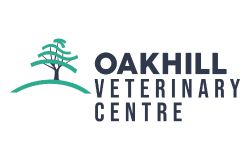Dental care
As is true with most things prevention is better than cure, and this is particularly true when it comes to dental disease. Regular dental checks are recommended for dogs, cats, rabbits and other small furries.
The Importance of dental care in pets
When it comes to keeping our pets healthy, dental care is often overlooked, yet it’s just as important as any other part of your pet’s health. In fact, dental disease is one of the most common health issues affecting cats and dogs, with signs often going unnoticed until the condition becomes painful or advanced.
By the age of three, most pets show some signs of periodontal disease, which can include bad breath, red or bleeding gums, tartar build-up, and difficulty eating. Left untreated, dental disease can lead to serious problems like tooth loss, infections, and even damage to vital organs such as the heart, liver, and kidneys due to bacteria entering the bloodstream.
Regular home dental care
Regular home dental care plays a crucial role in preventative plaque and tartar build up and therefore keeping your pet healthy. Ideally this involves regular brushing of your pet’s teeth, but there are other options such as using dental diets and chews, or water additives to your pets drinking water. Alongside home dental care pets still require routine dental checks as part of their overall healthcare plan.
Regular dental checks and cleaning
We highly recommend regular checks, as dental disease is not just a cosmetic problem. It can result in significant pain and infection for the sufferer, often going unnoticed because dogs and cats are very good at hiding their discomfort. Early intervention alongside regular home care is the key to maintaining your pets dental health.
Symptoms of dental problems include:
- Bad breath
- Inflamed gums (gingivitis)
- Tartar
- Trouble chewing or chewing on one side
- Fractured or loose teeth
- Nasal discharge and sneezing
- Weight loss
Dental procedures
Veterinary dental cleanings, done under anaesthetic, involves a scale and polish procedure including under the gum line; something that simple cannot be done while your pet is awake. These professional cleanings remove tartar and allow for full assessment and treatment of the dental disease present such as tooth extraction.
- Firstly a careful examination of the soft tissues of the mouth is carried out before attention is turned to the teeth themselves to make sure no other problems are missed.
- Next, any teeth which are damaged, loose or where gum recession has caused the roots to be exposed are extracted to prevent pain and discomfort.
- The remaining teeth are ultrasonically scaled and then polished to remove bacteria in the month.
- A dental chart is completed as part of the assessment, detailing and dental disease such as inflammation and gum recession.
In some cases your pet may need a course of antibiotics prior to, or following, a dental procedure to decrease the level of infection present in the mouth and assist with post-operative recovery.
